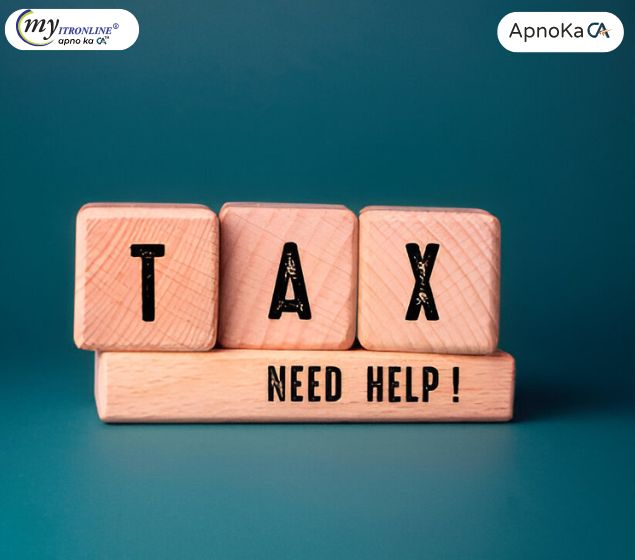# taxexemption
12 posts in `taxexemption` tag

Big Relief for NGOs: 10-Year Validity Period for Trust Registrations
This blog post details the Indian government's pivotal move to introduce a 10-year validity period for trust registrations, replacing the previous perpetual system. It highlights how this "revolutionary change" significantly reduces administrative burden, enhances planning stability, and improves transparency for charitable organizations and NGOs. The article also outlines key implications for existing and new trusts, emphasizing the shift towards digitalization and a more efficient non-profit sector.

HRA in the New Tax Regime: What You Must Know to Avoid Notices
This blog demystifies the treatment of House Rent Allowance (HRA) under India's New Tax Regime. It clarifies whether HRA is exempt, outlines its impact on your tax filing process, and provides crucial advice on how to navigate the changes to avoid receiving tax notices. Learn the key differences from the old regime and ensure your tax compliance is seamless for the current financial year and beyond.

12A Registration Made Easy: Latest Online Guidelines for Indian NGOs
For non-profit organizations, charitable trusts, and societies in India, securing 12A registration is vital for income tax exemption. With the Indian government's move towards digital governance, the 12A registration process has undergone significant updates. This blog post provides a detailed look at the latest guidelines, including mandatory online filing via Form 10A/10AB, the requirement for re-registration for existing entities, the new 5-year validity period, and essential steps to ensure a smooth, compliant experience for your organization.

CBDT Notifies IRFC Zero Coupon Bonds: Tax Impact for Investors
The CBDT has notified IRFC's Ten-Year Zero Coupon Bonds under the Income Tax Act, potentially making the maturity proceeds tax-exempt under Section 10(15)(iv)(h). This offers a significant tax advantage for long-term investors compared to non-notified bonds.

Big Win for Indian Startups: 187 Approved for Tax Exemption Under Revised 80-IAC
The DPIIT has approved 187 startups for income tax exemption under the revised Section 80-IAC. This grants 100% tax deduction on profits for 3 years out of 10, under an updated framework with extended eligibility and a streamlined application process. This move boosts financial relief and growth for eligible Indian startups.

How to Save Tax on Capital Gains: Key Exemptions and Step-by-Step Claim Guide
This blog explains the key exemptions available under India’s capital gains tax laws for FY 2025-26, including the latest updates from Budget 2025. It covers who can claim each exemption, how to utilize the Capital Gain Account Scheme, and the correct process for claiming exemptions in your income tax return.

How to File Form 10AB Online: Final & Renewal Registration Guide (India)
This guide details Form 10AB, used by Indian charitable trusts, NGOs, and institutions for final or renewal registration/approval under Income Tax Sections 12A, 80G, and 10(23C). It clarifies the difference between Form 10A (provisional) and 10AB (final/renewal), outlines who must file, and explains the benefits and process of filing online via the Income Tax e-Filing portal. The post covers required documents, crucial deadlines (including the 6-month rules), discusses past extensions (like the June 30, 2024 deadline), the new condonation of delay facility, and the outcome of filing (5-year validity via Form 10AC).
.jpg)
How to Avoid Paying Capital Gains Tax on Stock Market Profits | An explanation of LTCG and STCG
Investors in the stock market must comprehend capital gains tax. This blog offers practical tips to reduce or prevent taxes on your stock market profits in addition to explaining Long-Term Capital Gains (LTCG) and Short-Term Capital Gains (STCG). Find out how to be tax-efficient while increasing your profits.
.jpg)
Tax Exemption for Delhi Construction Workers: What is Section 10(46)?
This blog discusses how Section 10(46) of the Income Tax Act exempts the Delhi Construction Workers Welfare Board from paying taxes, allowing it to effectively finance construction workers' welfare initiatives.
.jpg)
How to Get a Lower Tax Deduction Certificate (LTDC): Benefits and Process
This blog describes the notion of a Lower Tax Deduction Certificate (LTDC) in India, its benefits, and how to apply for it. Learn how to lower TDS on your income by filling out Form 13 under Section 197 of the Income Tax Act. Learn about qualifying requirements, needed documentation, and how an LTDC may enhance your cash flow and lower your tax burden.
.jpg)
Old vs New Tax Regime: A Detailed Comparison to Save More
The Indian government provides two tax regimes – the Old Regime and the New Regime – each with its own benefits and drawbacks. The Old Regime offers multiple deductions and exemptions, while the New Regime provides lower tax rates with minimal exemptions. This blog explores the key differences, tax calculations, and real-life illustrations to help taxpayers make an informed choice. Find out which tax regime suits your financial situation best!
.jpg)
Budget 2025 Brings 0% Tax for MSMEs Earning Up to 2 Crores
A ground-breaking tax reform was proposed in Budget 2025, offering companies with yearly sales up to 2 crores a 0% tax rate. This policy lessens the regulatory obligations for professionals, startups, and MSMEs by aligning with the presumptive taxation regime under Sections 44AD and 44ADA. For the benefit of small enterprises throughout India, the project seeks to increase entrepreneurship, simplify tax compliance, and encourage digital transactions.
